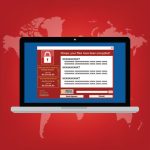Many breaches occur due to inadequate practices, like failure to encrypt data, or providers loading data onto thumb drives and carrying them around outside of the healthcare setting, said Dr. David Blumenthal of The Commonwealth Fund in New York, who co-authored an editorial about the results.
“A lot of that is about changing behavior of healthcare institutions and providers,” Blumenthal told Reuters Health by phone.
Concerned patients can ask at the reception desk of their doctor’s office or hospital about what security measures are taken with their health information, he said.
“I don’t think that people will necessarily understand what is said to them or that the responses will be accurate, but knowing that people care creates an immensely powerful force for change,” Blumenthal said.
People may be getting better at recognizing and reporting data leaks, which would explain their apparent increase over time, he said.
The breaches all incur federal penalties, but the penalties are not sufficient or stringent enough, he said.
Electronic health records do have tremendous value, however, Liu said.
“Leveraging information through technology, including electronic health records (EHRs) means that doctors in hospitals have access to full health records where and when they need them and . . . have all of the information about all of the patients
all of the time,” he said.
“So there are benefits as well as risks that healthcare providers and others will need to continue to address in the new
age,” Liu said.

